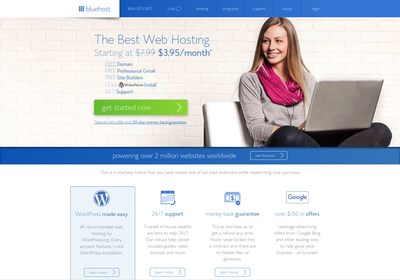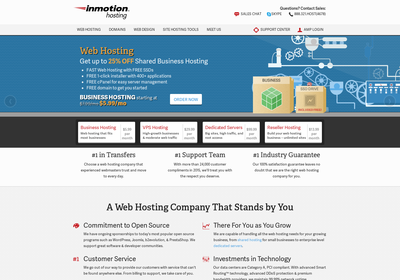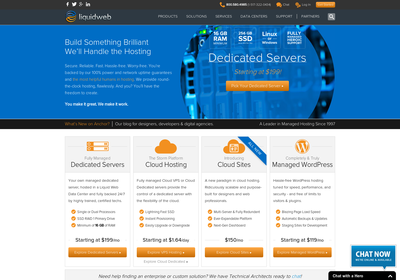Oops! No Hosting Plans Match Your Search
You’ve selected a combination of features that none of the web hosts we profile offer. We suggest you remove your last filter or reset & start again.
Ask Our Experts
Need help with your hosting? Tell us exactly what you are looking for and we’ll do our very best to help. Please allow one working day for a response.
Please fill in all fields.
Thanks! Your request has been sent. We’ll reply within 24 hours.
Recommended Web Host

 Prices in are approximate, based on current exchange rates. The host may charge you in USD.
Prices in are approximate, based on current exchange rates. The host may charge you in USD.
 Prices in are approximate, based on current exchange rates. The host may charge you in USD.
Prices in are approximate, based on current exchange rates. The host may charge you in USD.
 Prices in are approximate, based on current exchange rates. The host may charge you in USD.
Prices in are approximate, based on current exchange rates. The host may charge you in USD.
 Prices in are approximate, based on current exchange rates. The host may charge you in USD.
Prices in are approximate, based on current exchange rates. The host may charge you in USD.
 Prices in are approximate, based on current exchange rates. The host may charge you in USD.
Prices in are approximate, based on current exchange rates. The host may charge you in USD.
 Prices in are approximate, based on current exchange rates. The host may charge you in USD.
Prices in are approximate, based on current exchange rates. The host may charge you in USD.
 Prices in are approximate, based on current exchange rates. The host may charge you in USD.
Prices in are approximate, based on current exchange rates. The host may charge you in USD.
 Prices in are approximate, based on current exchange rates. The host may charge you in USD.
Prices in are approximate, based on current exchange rates. The host may charge you in USD.
 Prices in are approximate, based on current exchange rates. The host may charge you in USD.
Prices in are approximate, based on current exchange rates. The host may charge you in USD.
 Prices in are approximate, based on current exchange rates. The host may charge you in USD.
Prices in are approximate, based on current exchange rates. The host may charge you in USD.Small Business Hosting
Do you own a small business and need to take it online? The first big decision you’re going to have to make about your new website is what kind of hosting plan you need.
If you run a small non-tech business or non-profit organization, you might not be particularly familiar with what options are available or how a web hosting account works.
A Little Bit about Websites and Hosting
Most small, non-tech businesses need a relatively simple website — a few pages, a blog, links to social media, and maybe a few dynamic features like a calendar or a contact form.
The easiest way to set up a site like this is to use type of software called a Content Management System. A CMS is a piece of software that you install on a server (don’t worry, it’s pretty easy), which provides an easy way to add and update content, such as a new blog post or the text of the About page. The CMS stores your content in a database and displays it using built-in templates or theme files.
There are a number of interesting Content Management Systems available, each with their own unique strengths and weaknesses. For you, a small non-tech business, this makes no difference. The best choice for you is almost certainly WordPress.
WordPress is the most popular CMS available. It is widely supported, which means no matter what hosting company you pick, it will probably work. It’s very easy to install and use, and there is a very large user community that can help answer questions and suggest ideas.
There are a ton of free WordPress themes available, many of them customizable, so you can get your site looking just the way you want it. If you have more specific design needs, it isn’t hard to find WordPress developers who will build a new themes for you. Similarly, there are a huge number of plugins that add functionality to WordPress. With plugins you can add a calendar, a contact form, an online store, and just about any other kind of functionality you can imagine.
What Is Web Hosting
A web host is a company that provides server resources for you to use for your website.
A server is just a computer connected to the internet. You could (in theory) run a website from your own computer. But you’d have to keep it connected to the internet all the time, otherwise the site would go down everytime you disconnect or power-down. Also, your computer probably isn’t fast enough or powerful enough to handle a lot of internet traffic, and neither is your internet connection. Finally, setting up a computer to run a website requires a bit of skill which you may not have.
Hosting companies have servers set up already, and when you purchase a hosting plan, you are given remote access to a server to load up and manage your website.
Different Types of Web Hosting Plans
If you’ve started looking at hosting companies, trying to find a place to host your small business website, you may have been confused at the variability in pricing. Some hosting plans cost as little as a few dollars month, other plans are easily in the hundreds.
There are some interesting exceptions, but the majority of hosting plans fall into one of two general categories:
- Shared Hosting — Where many customers are sharing a single server and its resources for all of their sites.
- VPS Hosting — Virtual Private Server, where each customer has complete control of a single virtual machine.
The advantage to shared hosting is really just the price. Shared hosting plans are usually very inexpensive. If you see a hosting plan for less than $10/month, it is shared hosting.
The downside to shared hosting is the sharing of server resources (memory, bandwidth, computing cycles, IP address) with other customers. You’ll never see any of these other people or their websites, and the access is set up so that you never notice them explicitly, but they do have an effect. Heavy traffic on one site can cause a slowdown on another; spam email or virus infected content from one site can get all the other sites blacklisted, making them virtually unaccessible.
These things are rare, and they get dealt with, but they do happen.
VPS Hosting doesn’t have those problems because you have the full resources of the virtual machine. True, several VPS machines sit on top of real hardware, but VPS server density is much lower. Also, many VPS accounts are now running on “cloud” infrastructure, which means that a large number of computers have been clustered together and the virtual servers are running on top of that giant pool of resources. If site requires more power, additional computing power can be added to the cluster.
Small Business Web Hosting
Shared hosting is cheap, and it works. But it doesn’t always work and there are limitations. Use shared hosting for your small business website only if you meet all or most of the following criteria:
- Income is not primarily being generated directly through the website (via online sales, for example).
- The website is not mission critical, and an outage of up to a few hours at any given time would be — at worst — embarrasing, rather than catastropic.
- You expect to have fewer than a thousand visitors a day on most days.
If any of those aren’t true, you should probably think about using a VPS hosting plan.












